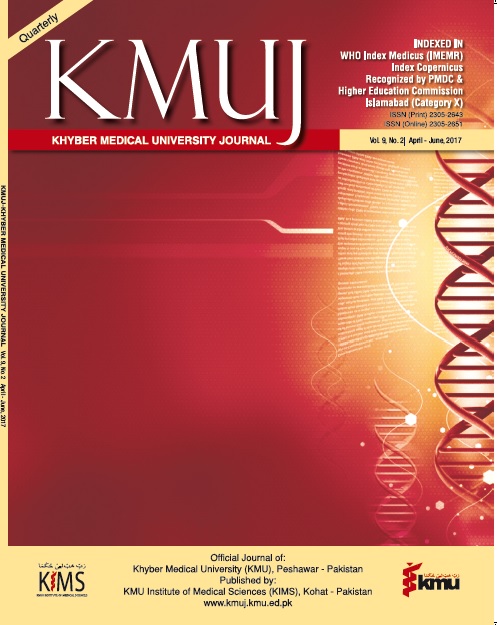IMPROVING PATIENT CARE AND PUBLIC CONFIDENCE IN DOCTORS: ROLE OF EFFECTIVE COMMUNICATION IN PATIENT CARE
Main Article Content
Abstract
ABSTRACT
Over the last few decades the health care has tremendously improved thanks to continuous advancements in the medical field. Besides latest technologies, new therapeutic agents, biomedical research, improving prognoses and sophisticated surgical techniques, the art of practicing medicine itself has also changed in a positive way. Due to latest information technology, the patients and their carers of current era are more knowledgeable about various health problems and the ways these can be managed effectively. This has resulted in high expectations from doctors which occasionally may not be realistic. These factors have increased the responsibilities of modern time doctors. In addition to the need for being up to date with the latest medical developments, they also need to focus and improve skills which are vitally important in patient care such as effective communication, ensuring continuity of care and managing patients through team approach. There is a desperate need to improve these skills for three main reasons; to improve quality of care, to build public confidence in doctors and most importantly to reduce the increasing number of complaints against doctors.
Key words: Quality of Health Care (MeSH), Quality Improvement (MeSH), Delivery of Health Care (MeSH), Health Communication (MeSH), Patient Care (MeSH), Continuity of Patient Care (MeSH),
Article Details
Work published in KMUJ is licensed under a
Creative Commons Attribution 4.0 License
Authors are permitted and encouraged to post their work online (e.g., in institutional repositories or on their website) prior to and during the submission process, as it can lead to productive exchanges, as well as earlier and greater citation of published work.
(e.g., in institutional repositories or on their website) prior to and during the submission process, as it can lead to productive exchanges, as well as earlier and greater citation of published work.
References
Kinnersley P, Edwards A. Complaints against doctors. Br Med J. 2008;336(7649):841-2. doi:10.1136/bmj.39525.658565.80.
Taylor DM, Wolfe R, Cameron, P. A.Complaints from emergency department patients largely result from treatment and communication problems. Emerg Med 2002; 14: 43–9.
Stelfox HT, Gandhi TK, Orav EJ, Gustafson ML. The relation of patient satisfaction with complaints against physicians and malpractice lawsuits. Am J Med 2005;118(10):1126-33.
Hanratty B, Lowson E, Holmes L, Grande G, Jacoby A, Payne S, et al. Breaking bad news sensitively: what is important to patients in their last year of life?.BMJ Support Palliat Care 2012; 2:24-8.
Rassin M, Levy O, Schwartz T, Silner D. Caregivers' role in breaking bad news. Patients, doctors, and nurses' points of view. Cancer 2006 Jul-Aug; 29(4):302-8.
Anderson MA1, Helms LB. Talking about Patients: Communication and Continuity of Care. J Cardiovasc Nurs 2000 Apr;14(3):15-28.
Haig KM, Sutton S, Whittington J. SBAR: a shared mental model for improving communication between clinicians. Jt Comm J Qual Patient Saf. 2006 Mar;32(3):167-75.
Leonard M, Graham S, Bonacum D. The human factor: the critical importance of effective teamwork and communication in providing safe care. Qual Saf Health Care. 2004 Oct;13 Suppl 1:i85-90.
